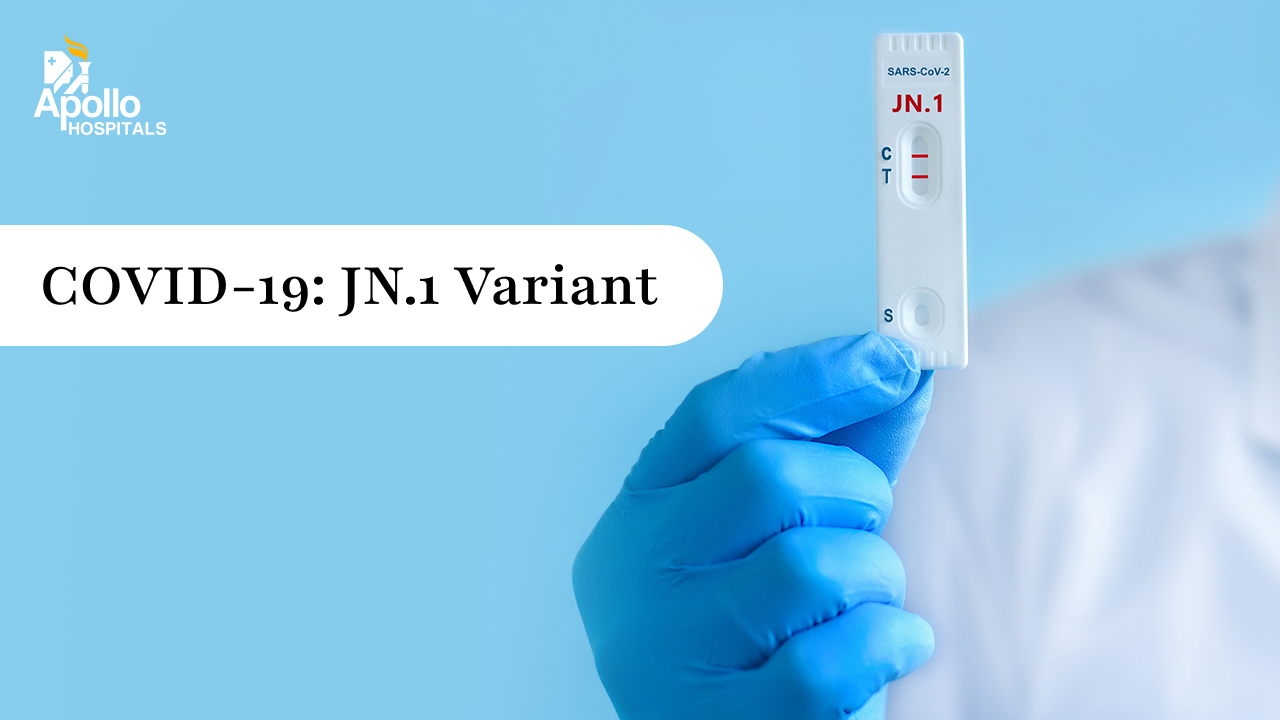Could not find what you are looking for?
- Health Library
- JN.1 New COVID-19 Variant: Symptoms, Diagnosis, Risk, Vaccination and Protection
JN.1 New COVID-19 Variant: Symptoms, Diagnosis, Risk, Vaccination and Protection

Overview
As the COVID-19 pandemic continues to evolve, new variants of the SARS-CoV-2 virus emerge, impacting public health and requiring appropriate responses. One such variant, JN.1, has garnered attention due to its increased transmissibility and potential to partially evade immunity.
This article aims to simplify and provide an in-depth understanding of what the JN.1 variant is, including how it spreads, its differences from earlier variants, and how you can protect yourself and your family, using facts, not fear.
What Is the JN.1 Variant?
JN.1 is a subvariant of Omicron, which evolved from the BA.2.86 variant (also known as Pirola). First identified in Luxembourg in August 2023, it has spread globally. In December 2023, the WHO classified JN.1 as a Variant of Interest.
This variant carries genetic mutations that make it more transmissible. However, there are no alarming mutations linked to increased severity or vaccine resistance. Experts describe JN.1 as a 'stealth variant'—it spreads quickly and quietly. With global travel accelerating, the risk of wider transmission is high.
Global Spread and Impact
By early 2024, JN.1 became the dominant strain in several countries, including the United States, accounting for a significant proportion of COVID-19 cases. As of May 2025, countries such as Singapore and Hong Kong were experiencing a surge in COVID-19 cases, with JN.1 and its sublineages, including LF.7 and NB.1.8, being the dominant strains. Singapore alone saw a 28% rise in infections over one week in May 2025.
How Is JN.1 Different from Other Variants?
JN.1 spreads faster due to spike protein mutations and can partly evade immunity. However, there's no evidence it causes more severe disease. Symptoms remain similar to previous Omicron strains.
Symptoms Associated with JN.1
The symptoms of JN.1 are similar to those of other Omicron variants and can include:
-
Fever or chills
-
Dry cough
-
Shortness of breath or difficulty breathing (in vulnerable individuals)
-
Fatigue
-
Muscle or body aches
-
Headache
-
Sore throat
-
Congestion or a runny nose
-
Nausea or vomiting
-
Diarrhea
It is important to note that these symptoms can vary among individuals, and some people may experience mild or no symptoms at all.
Who Is Most at Risk?
High-risk groups include:
-
Seniors (60+)
-
People with diabetes, heart disease, cancer, or lung disease
-
Immunocompromised individuals
-
Pregnant women
-
Those without booster doses
Severity and Risk
Current data suggests that while JN.1 is more transmissible, it does not cause more severe illness compared to previous variants. Most infections are mild, especially in individuals who are vaccinated or have prior immunity. However, vulnerable populations, like the elderly or those with underlying health conditions, should remain cautious.
Vaccination and Protection
Vaccination remains a crucial tool in combating COVID-19. Current vaccines continue to provide protection against severe illness, hospitalization, and death caused by JN.1. Booster doses may enhance immunity, especially in high-risk groups. It's advisable to stay updated with local health guidelines regarding vaccination schedules and the requirement for boosters .
Testing and Detection
PCR and Rapid Antigen Tests can detect JN.1. Genomic sequencing identifies variants and is used for surveillance.
Preventive Measures
Preventive measures remain the same , whatever the variant .
To reduce the risk of infection:
-
Practice good hand hygiene. Wash your hands regularly with soap and water.
-
Wear masks in crowded or poorly ventilated areas.
-
Maintain physical distancing where possible.
-
Stay at home if you feel unwell and seek medical advice if symptoms worsen.
-
Ensure you are up-to-date with COVID-19 vaccinations as well as boosters.
Conclusion
The emergence of the JN.1 variant underscores the importance of continued vigilance in the fight against COVID-19. While this variant is more transmissible, current evidence suggests that it does not cause more severe illness compared to previous strains. Staying informed, adhering to public health guidelines, and maintaining preventive measures remain key strategies in protecting oneself and the community.
Frequently Asked Questions (FAQs)
1. How does JN.1 differ from other variants?
JN.1 has mutations that enhance its transmissibility and ability to partially evade immunity. Nevertheless, it does not appear to cause more severe disease than previous variants.
2. Are current COVID-19 tests effective in detecting JN.1?
Yes, standard PCR and rapid antigen tests can detect infections caused by JN.1. However, specific variant identification requires genomic sequencing, which is typically conducted for surveillance purposes.
3. Is JN.1 Already in India?
Yes. JN.1 is already circulating in India. The subvariants here may differ slightly from those in Hong Kong and China. Though highly infectious, JN.1 typically causes mild illness. No new or alarming clinical patterns have emerged.
4. Should I be concerned about the rise in cases due to JN.1?
While JN.1 is more transmissible, maintaining preventive measures and staying up-to-date with vaccinations can significantly reduce the risk of severe illness.
5. Can I get reinfected with JN.1 after recovering from a previous COVID-19 infection?
Reinfections are possible, especially with variants that have mutations allowing them to evade immunity. However, prior infection may provide some level of protection against severe outcomes.
6. What should I do if I experience symptoms consistent with COVID-19?
If you develop symptoms, it's advisable to get tested, isolate to prevent spreading the virus, and consult with your healthcare provider for guidance on management and care.

















